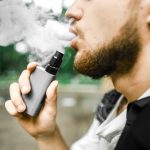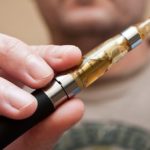Importing Any Disposable Vape Into Australia Is Now Banned

As of the 1st January 2024, a nationwide prohibition on the importation of single-use vapes came into effect, which is just the first stage in a crackdown upon this alternative to smoking, and the new year ban applies regardless of whether an imported disposable vape contains nicotine or not.
“The changes… address the risks associated with the use of vapes, particularly among children and young people, while preserving legitimate patient access to therapeutic vapes, under medical supervision” to assist in quitting smoking, the Therapeutic Goods Administration has explained.
This nation has always treated vapes with circumspection, despite their being marketed as a healthier choice to highly carcinogenic cigarettes.
Indeed, due to heavy restrictions on nicotine vaping liquid, it’s been easier to buy online illegal imports, than prescription-only legal local supply.
And the authorities’ resistance to vaping has resulted in it being easier for adults to obtain cigarettes than to access nicotine vaping liquid as it requires a script, whilst procuring under-the-counter illegal imported vapes has proven simpler for minors to acquire than purchasing restricted sale cigarettes.
But rather than look to the obvious alternative of regulating vape sales and use in a similar manner to tobacco, the government is now in the midst of rolling out a series of “increasingly severe” restrictions on vaping, which, as the TGA sets out, actually has a “legitimate” therapeutic use.
The war on vaping
During his 2 May address to the National Press Club, federal health minister Mark Butler launched a campaign against vaping, claiming that gains made on smoking since the 1980s were being foiled by the alternative to smoking, which he deems to be “a new threat to public health”.
Butler described a situation whereby “vaping was sold to governments and communities… as a therapeutic product”, but in “the biggest loophole in Australian history”, vapes have become a “recreational product” for teenagers that are “sold alongside lollies and chocolate bars”.
In NSW, section 22 of the Public Health Tobacco Act 2008 (NSW) makes it illegal to sell e-cigarettes or vapes to people under 18, via threat of a $11,000 fine for a first time offender and a $55,000 fine from then on and for businesses that offend the fines are $55,000 and $101,000 respectively.
However, such restrictions don’t prevent under-the-counter sales of vapes to minors.
The health minister then outlined that the “first thing to do is to stop the import of vapes” that aren’t bound for pharmacy sale and aren’t made in compliance with to-be-established TGA standards, as “the import of vapes for sale in retail settings will end”.
This process commenced on Monday with the ban on disposable vape imports, and with this reform came a new special access pathway that allows doctors and nurse practitioners to prescribe therapeutic nicotine vaping products without pre-TGA approval, making scripts easier to obtain.
And from 1 March onwards, a prohibition will be placed on the importation of all non-therapeutic reusable vapes, while retail stores will be permitted to sell their existing stock of both disposable and non-therapeutic refillable vapes prior to a retail ban taking effect.
The minister will be introducing legislation early this year, seeking to impose a domestic ban on the manufacture, supply, advertising and commercial possession of disposable vapes and non-therapeutic reusable vapes “to ensure comprehensive controls across all levels of the supply chain”.
New standards will then apply to the import and manufacture of all therapeutic vape products, which will be available prescription-only. And these products will include new specifications that will apply to vaping devices, and vaping flavours will be limited to mint, menthol and tobacco.
The regulations are wrong
Dr Colin Mendelsohn founding chair of the Australian Tobacco Harm Reduction Association (ATHRA) told 3AW on 2 January, that he’s antismoking and, as the majority of people can’t quit tobacco use without assistance, vaping offers smokers an alternative that’s 95 percent safer.
“Unfortunately, in Australia, we’ve just got the regulations wrong,” Dr Mendelsohn outlined on air on Tuesday. “In the UK, in New Zealand, in Canada and the US, they make vaping available as an adult consumer product, like cigarettes.”
“So, if you smoke, you can go to a licensed retail outlet and say, ‘I want to switch to a safer alternative’, and you can access those products,” he continued. “But kids have strict age verification requirements. There are ways of restricting access to kids but making it available to adults.”
The doctor added that in Australia, the government has taken an aversion to this harm reduction method and is attempting to make it as hard to access as possible even for adults, when in other comparable countries the same restrictions that apply to alcohol and tobacco sales are sufficient.
Dr Mendelsohn further explained in a recent article that “vaping has faced relentless, hostile opposition” in this country, which has ignored the benefits of vapes as a quitting aid and rather played up any negative points, which the mainstream media has been all too willing to amplify.
The other aspect that’s emerged due to Australia’s refusal to adequately regulate vaping earlier on, and which is likely to be exacerbated by the current attempt to eradicate most of them, is that it has created a rampant black market, which has gone a long way in supporting youth use.
Bound to fail
New regulation 5A of the Custom (Prohibited Imports) Regulations 1956 (Cth) imposes the prohibition on the importation of vapes, and it sets out the conditions under which importation is permissible and the licensing scheme.
The section also stipulates that vape importation licence holders commit an offence if they breach the rules.
Section 50(4) of the Customs Act 1901 (Cth) contains the offence a vape importation licensee holder breaks if they contravene the regulations on bringing therapeutic vapes into the country. This crime carries a fine of up to $31,300 as a maximum penalty.
As for the offence pertaining to the importation of prohibited goods, it sits under section 233 of the Customs Act, and the crime carries a maximum fine of $313,000.
Former Australian Border Force Tobacco Strike Force leader Rohan Pik told the Sydney Morning Herald on the first day of the year, that from his experience he can’t see how the border force would be able to do anything to curb the flow of black market vapes into the country.
ATHRA director Dr Alex Wodak wrote on X on 1 January that he considers the “increasingly severe restrictions on vaping… will fail”, as the proof has been laid bare by the long-term prohibitions on psychoactive substances that not only has failed but has increased use and escalated related crime.
“Demand for vapes is strong and growing in Australia and globally,” Wodak continued. “Squeezing legal supply just inflates illegal supply.” So, the more authorities squeeze, the higher the price charged by traffickers, which attracts more people into becoming black market suppliers.
Wodak further set out that illicit substances have been banned for over half a century, but they all continue to be readily available in the community, and whilst a ban might work when demand is weak, there’s strong demand for vapes at present, especially as they’re safer than cigarettes.
The doctor asserted that “the case for Australia’s vaping policy is arrant nonsense” or a “house of cards” ready to collapse.
The majority of the public support regulated vaping, like cigarettes, despite daily drip-feed anti-vaping propaganda from governments, media and academics,” Wodak said in conclusion, and added that harm reduction interventions, like needle and syringe programs, always face initial resistance.







